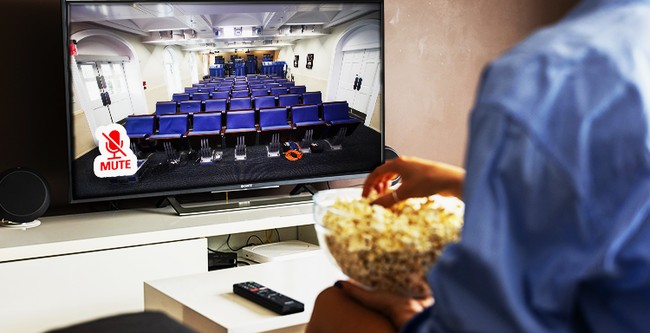This being fall, it means it is time for what has become something of an annual tradition: Just How Far Has the Press Fallen?!
On Sunday, RedState's Andrew Malcolm brought up the details we see this time of year, as Gallup comes out with its regular poll asking Americans their opinions on a list of various business interests. With this, the pollster provides more detailed metrics on the individual industries. One selection is the press, and the breakdown is jarring for those plying their vocation in the media.
SEE MORE: Can Americans' Trust in Media Sink Any Lower? Yes, but There’s a Twist Now
For the seventh consecutive year, the public perception of their faith in the press has fallen. As bad as it sounds, it becomes worse once you break down the internal figures. But first, here are the latest results.
Trust in the mass media is at an all time low according to Gallup.
— ChelseaRiessMatthews (@1ChelseaM) October 6, 2025
Only 28% of people trust the media a great deal or fair amount.
People are looking for themselves not just accepting what mass media, who have controlled narratives, are saying to them.
Examine things for… pic.twitter.com/PExsm6tfAB
This low level of faith in the press has fallen from last year, when it hit a record low, becoming the first time the figure dropped below 30 percent. Making this all the worse is the measurement itself. The figures show that people with not much faith in the press is at 36 percent, and no faith at all 34 at percent, but to achieve that 28 percent level, they had to combine those with a high degree of faith in the press (eight percent) and a fair amount (20 percent). That is woeful.
What is remarkable about all of this is something I frequently cover in my media podcast: while most in the press acknowledge there is this problem, almost nobody in the ranks of journalists appears willing to address what is leading to this. As one example, CNN media guru Brian Stelter has been tracking this descent of credibility for more than a decade, yet he, like so many in the press, continues undeterred in his biased coverage.
There have been select instances of moves being made to attempt to repair the audience flight. The publisher of the Los Angeles Times has said he wants his newsroom altered to include more voices, and Washington Post owner Jeff Bezos has been working to revamp his editorial teams and other internal setups to shift their coverage, albeit slightly.

Nothing about moving a news outlet even incrementally closer to the center is easy. Look at what was witnessed at both of these papers during the general election. Each made the editorial decision not to endorse a presidential candidate, and the collective howls heard from this were amusingly melodramatic. Screeds from writers were penned, and there was a not insignificant number of journalists and editors who quit as a result.
While not a new position concerning journalism staff, this was a sign of a new level of partisan passion. For generations, it has been measured that a large majority of newsrooms are Democrats or leftists. But this new generation has ramped things up. The younger journos are exerting an unearned influence in newsrooms.
What is in play is a similar reality in the Democratic Party, where the hyperleftists are somehow demonstrating control due to activist office politics. The old guard Dems have to become more extreme to appease this hyper-left-wing faction in the party. As a result, the Democratic Party faces historically low approval numbers.
Everything from racism, sexism, transphobia, and more becomes accused, and they rest on DEI and CRT movements to claim they face oppression and feel unsafe in the workplace. Don McNeil was chased from the New York Times after decades of recognized work. It was over racism allegations of the dumbest order. He allegedly said a racial epithet, but this was not a workplace issue. He was discussing the subject of race with students, and when given details of an incident, he clarified what had been said by others. This was exploded into a newsroom controversy, despite the details.
“Our community is outraged and in pain,” the staffers wrote in a letter to management. “That is offensive and unacceptable by any newsroom’s standards.” All this, about something that had no bearing on the newsroom. McNeil had said the dire word on an educational trip. Years earlier. In another country. The incident had already been investigated by the paper, and even though they had determined at the time that he had not spoken maliciously, he was dealt a punishment.
But then, years later, the details were leaked to The Daily Beast, and as a result of a firestorm, McNeil was dismissed after a 47-year career. This same mob mentality is what saw Bari Weiss run off from the same newsroom. The paper also saw a staff uprising because it ran the now infamous editorial by Senator Tom Cotton, where he dared suggest that violence in our cities was an unacceptable reality. This same activist rot is seen in numerous offices at major news outlets.

When you have journalists and editors operating in this manner – that they possess the only truth, and that any deviation in positioning needs to be amputated – it is going to corrupt the news coverage. And this rock-ribbed standpoint also means that there is little interest in exploring whether they could be in error. When you are obstinate in your approach to the news, it means you are not the least bit curious about what is driving off your core audience.
It is more than a convenient explanation to say consumers are turning to alternatives for their news consumption. Bari Weiss moved to independent journalism and built up her own platform, The Free Press, into a powerhouse outlet. Now Weiss is poised to disrupt the very corrupt industry.
Her outlet was purchased by the recently merged Skydance-Paramount conglomerate, owners of the CBS Network. Weiss is in the process of being installed as Editor-in-Chief of CBS News, and there is all manner of wailing and shrieking over this move. Her arrival and addressing of problems at the network are needed, but the reaction to Weiss taking over reveals the issue. The people who know there is a problem in the media are fighting mightily against repairing the problem.
They are only going to create more of the Bari Weiss mindset, and more competing outlets will emerge. The people who love to lecture to us refuse to learn.














